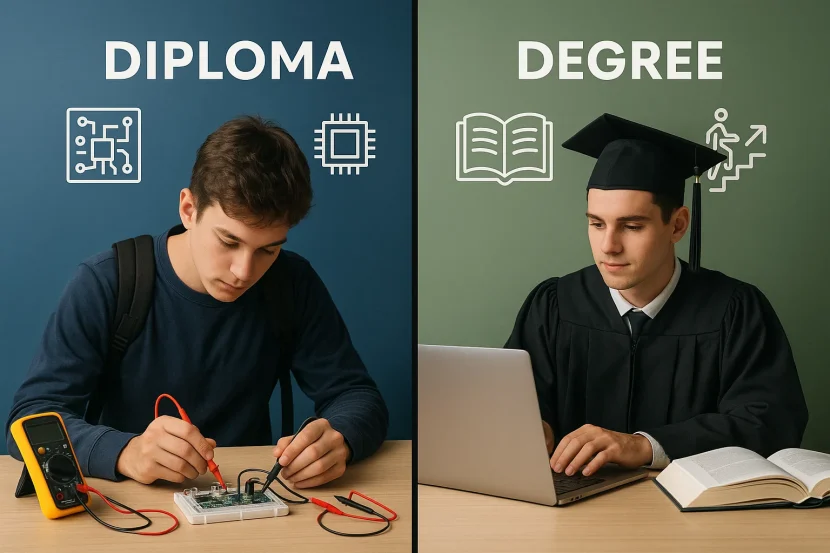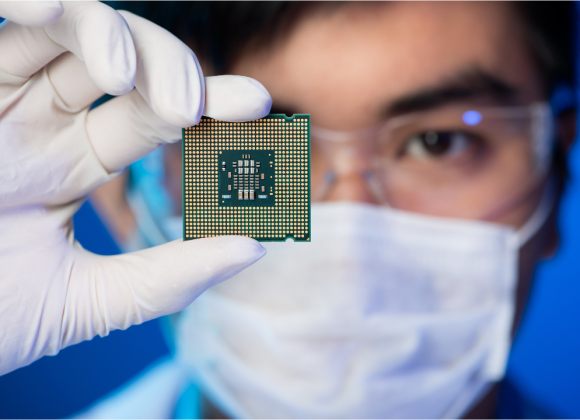As technology evolves and electronics play a growing role in industries like automation, manufacturing, and communications, many students find themselves wondering: Should I go for a diploma or a degree in electronics? The answer depends on your career goals, budget, timeline, and interests. This blog compares both options to help you make an informed decision.
What Is a Diploma in Electronics?
A diploma in electronics is a skill-based, job-oriented program that typically lasts 2–3 years after Class 10 or 12. It focuses more on practical knowledge and industry-specific training in areas like basic electronics, circuit design, microcontrollers, and PLC programming.
Key Highlights:
- Entry: After 10th or 12th
- Duration: 2–3 years
- Focus: Practical & technical skills
- Cost: Lower tuition fees
- Outcome: Technician/Operator-level jobs
What Is a Degree in Electronics?
A degree in electronics, such as a B.Tech/B.E. in Electronics and Communication Engineering (ECE) or B.Sc. in Electronics, offers a comprehensive academic foundation. It combines theory, mathematics, and research with some practical lab work, preparing students for higher-level roles or further education.
Key Highlights:
- Entry: After 12th (with PCM)
- Duration: 3–4 years
- Focus: Theory + advanced concepts
- Cost: Higher than diploma
- Outcome: Engineering/Research/Development roles
Diploma vs Degree: Quick Comparison
| Criteria | Diploma in Electronics | Degree in Electronics |
|---|---|---|
| Entry Eligibility | After 10th or 12th | After 12th (with Physics, Chemistry, Math) |
| Duration | 2–3 years | 3–4 years |
| Curriculum Focus | Practical, job-ready skills | Theory + Practical + R&D |
| Cost | Lower | Higher |
| Job Roles | Technician, Operator, Supervisor | Engineer, Analyst, Designer |
| Career Growth | Slower, more hands-on | Broader, leadership and R&D roles |
| Higher Education | Limited (unless lateral entry) | Strong base for M.Tech, MBA, etc. |
Career Opportunities
| With a Diploma | With a Degree |
|---|---|
| Electronics Technician | Electronics Engineer |
| PCB Assembly Operator | Systems Designer |
| Maintenance Engineer | Embedded Systems Developer |
| Field Service Technician | IoT/Automation Engineer |
| PLC/Automation Support Staff | R&D Specialist |
Which One Should You Choose?
You should choose a diploma if you want to start working early, prefer hands-on learning, need a budget-friendly option, and aim for technician-level or support roles. On the other hand, a degree is the better choice if you’re looking for higher career growth, are ready to invest more time and money, plan to pursue postgraduate studies, or aim for roles in engineering, development, or management.
🔗 Related Links




